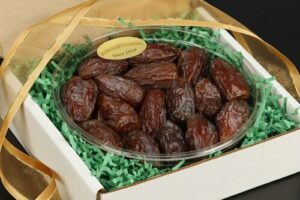How To Keep A High Fiber Diet
Most of those who are obsessed with bodybuilding prioritize protein in their daily menu and they have a good reason for that. To build muscle like a professional athlete, protein should be at the top of your list. But although other nutrients also play an important role, fiber is often added later to this list. And that could be a big mistake.
In fact, chances are you’re not getting enough fiber. Research shows that more than 90 percent of Americans are not getting their daily amount of fiber, which is 25 grams for women and 38 grams for men. This is not good for your body shape, and more importantly your overall health.

In addition to regulating bowel activity, a high-fiber diet can help reduce fat, improve digestive health, improve cholesterol levels, and reduce the risk of certain cancers. Therefore, it should not be surprising that in 2014, a study was published in the Journal of Clinical Nutrition that showed that those who consume more fiber live longer than those who consume less. Plus, if you’re eating a high-fiber diet, chances are your daily menu is full of the highly nutritious foods you need to reach your bodybuilding goals.
When it comes to staying lean like a racehorse, Fiber 2 is a powerful score. First, fiber keeps you from feeling hungry, so you don’t overindulge on those biscuits in the break room at work. Also, a diet that contains enough fiber improves blood sugar control, which is very effective in reducing fat storage.
Fiber content: 6 grams per half cup
Kedai Kurma Malaysia: Food rich in fiber
If you have a strong desire for sweets and your blood sugar is not high, satisfy this desire with very sweet Kedia Kurma to enjoy the benefits of its dietary fiber. Dates are also an important source of potassium, which controls your blood pressure. The best type of date is Medjool dates.
* Dried fig
Fiber content: 15 grams per cup
Food rich in fiber, dried figs
Fresh figs may not always be easy to find at your local grocery store, and their sky-high prices can really make you hungry, but dried figs are available year-round, and are a great source of fiber. You can thank those little seeds for providing plenty of fiber. As a bonus, you also get an array of nutrients, including calcium, magnesium, potassium, and vitamin K, that other dried fruits don’t.